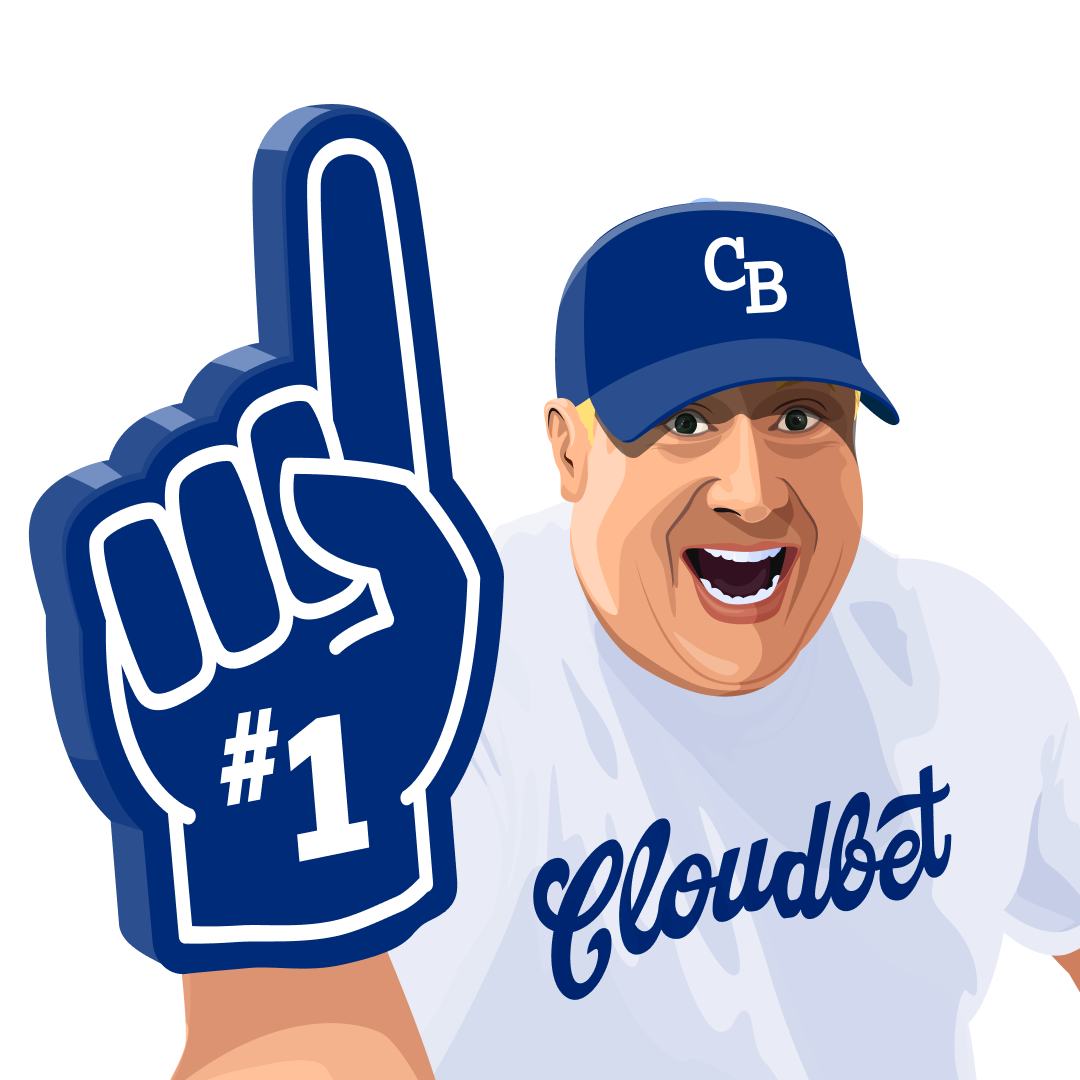In sports betting, “the field” refers to all participants in an event who aren’t individually listed with their own odds. It’s commonly used in large-entry markets like golf tournaments, horse races, and novelty props. A bet on the field wins if any of those unlisted competitors come out on top—making it a high-risk, high-reward option for bettors looking beyond the favorites.
In this guide, we’ll break down what “the field” means, why sportsbooks offer it, and where you’re most likely to see it—across golf, racing, combat sports, the Olympics, and even politics. We’ll explain how field odds are set, when betting the field makes strategic sense, and how to spot value. Real-world examples and sharp betting tips included.
Contents
- 1 What “the field” really means
- 2 Why would you bet on the field?
- 3 How do sportsbooks price the field?
- 4 Sports where field bets appear
- 4.1 Golf: Majors and large-field events
- 4.2 Horse racing: Kentucky Derby, Breeders’ Cup
- 4.3 Olympics & World Cup: Top scorer, medalist markets
- 4.4 Combat sports: UFC undercards, boxing novelty props
- 4.5 Entertainment & politics: “Next Pope,” “Best Picture,” elections
- 4.6 Esports: Majors, MVPs, and surprise runs
- 5 Risks of betting the field
What “the field” really means
In sports betting, the field refers to all competitors in an event not listed with individual odds. Instead of pricing every single participant, sportsbooks group lesser-known or long-shot entries into a single betting option: “the field.”
Think of it as a wildcard bet. You’re wagering on everyone else—every name the book didn’t think was worth listing on its own.
Picture a major golf tournament: The sportsbook posts odds on the top 20 players—Rory McIlroy, Scottie Scheffler, Jon Rahm, and other favorites. Then, below those names, you’ll see an entry labeled “the field.” That covers every other golfer in the tournament. A bet on the field cashes if any of those unlisted players wins.
This isn’t unique to golf. You’ll find field bets in horse racing, MMA cards, Olympic prop markets, and even entertainment odds. It’s a catch-all group for outsiders—a single price on the long shots.
Why would you bet on the field?
Field bets are usually priced as underdogs, but don’t let that fool you. They can offer sneaky value in the right spots, especially when the market’s leaning too hard on a favorite.
Here’s when smart bettors eye the field:
- They smell value. Sometimes sportsbooks shade the odds toward big names—especially in public-heavy markets like golf majors or title fights. That creates inflated prices on lesser-known contenders lumped into the field.
- They like chaos. In wide-open tournaments—early-season PGA events, March Madness, Olympic qualifiers—there’s often no clear dominant favorite. Betting the field becomes a way to capitalize on variance, where underdogs actually have a puncher’s chance.
- They want numbers on their side. Instead of betting on one or two players to beat the field, you’re flipping it—betting on the field to beat one or two favorites. That’s 50+ players in your corner. In markets full of variance, that can be a smart numbers play.
Let’s be clear, though: It’s not as simple as “more chances = better bet.” Odds matter. You’re not buying lottery tickets, you’re looking for positive expected value (EV). That means the field price must reflect a realistic chance of an outsider winning. If not, it’s just a bad bet dressed up as a bargain.
How do sportsbooks price the field?
Sportsbooks offer field bets because they simplify pricing and manage risk. In events with dozens or hundreds of participants, pricing every entry individually is inefficient.
Instead, sportsbooks post odds for the most likely winners—where they expect most of the action—and group the rest into “the field.” It keeps the betting menu clean while still letting bettors take a stance on long shots.
When a sportsbook sets odds for “the field,” it’s calculating the combined implied probability of all unlisted entrants winning. The more potential winners in that group—and the less dominant the favorites—the shorter the field odds will be.
There’s a direct relationship between field pricing and favorite strength. If a market features a clear, public-backed favorite (like Scheffler in a PGA event or a top-ranked UFC fighter), the field price tends to be longer. But in wide-open events where no single name commands the board, the field may be priced more aggressively.
Sharps vs. the public plays a key role here. Books know public bettors love favorites—they’ll gladly overbet the big names, even when they’re overpriced. That allows sportsbooks to offer deceptively high payouts on the field, even when the true win probability of that group may suggest better value.
Smart bettors look beyond the headline names. If the favorite is overhyped or the market’s ignoring legitimate contenders in the field, that’s where sharp money often flows.
In short: field odds aren’t arbitrary—they’re a reflection of market expectations, risk exposure, and the sportsbook’s read on where the smart vs. square money is likely to land.
Sports where field bets appear
Field bets are most common in sports with large pools of participants and unpredictable outcomes, where pricing every individual competitor isn’t practical or efficient. That’s why golf and horse racing are the natural homes for this market type.
In a PGA Tour event or a major race like the Kentucky Derby, there can be over 100 players or horses in contention. Sportsbooks typically list odds for the most bettable names and group the rest into “the field” to keep lines manageable and markets liquid.
But field bets go beyond the course and the track as the list below shows:
Golf: Majors and large-field events
Golf is a classic use case for field bets. In tournaments like The Masters or The Open Championship, books list odds for 20–50 top players and lump the rest into “the field.” With 100+ entrants and volatile conditions, field bets let you back every outsider in a single wager.
Horse racing: Kentucky Derby, Breeders’ Cup
In big races with crowded fields, not every horse gets listed individually—especially long shots. The field covers these unlisted runners. If any of them wins, your field bet hits. It’s a common option in races with more than 20 entries or tight betting windows.
Olympics & World Cup: Top scorer, medalist markets
Field bets show up in prop-style markets like “Top Olympic Gold Medalist” or “World Cup Golden Boot.” Books can price stars like Mbappé or Messi individually, then offer the field to capture the rest, often including underrated breakout performers.
Combat sports: UFC undercards, boxing novelty props
Field bets appear in fights when only a few matchups are priced in full. Think of UFC undercards or “next opponent” markets. In novelty props, you might see “Fighter X vs. the field” to reflect odds that anyone else might take the title or win the belt.
Entertainment & politics: “Next Pope,” “Best Picture,” elections
Field bets thrive in high-profile, uncertain markets. In Oscars betting, you’ll see “Best Picture” nominees priced individually with “the field” covering surprise contenders. Political markets—like “Next UK Prime Minister” or “Next Pope”—often offer field options when lesser-known names can’t be efficiently priced.
Esports: Majors, MVPs, and surprise runs
Field bets in esports are rarer because the competitive hierarchy is more concentrated, and fans often demand deeper markets. Still, in situations with unpredictable qualifiers, new-team dynamics, or chaotic group stages, the field can pop up—and sometimes pay off.
In all of these cases, the field offers a way to bet on volatility—but it’s not always a value play. Knowing when that coverage is worth the price is where sharp bettors separate from the crowd.
Risks of betting the field
Betting on the field might feel like you’re increasing your chances. After all, you’re backing everyone else, right? But that mindset is exactly what sportsbooks are counting on.
The field often lures rookies into thinking they’ve found a hidden edge because they’re “covering more outcomes.” But in reality, you’re usually sacrificing payout for coverage. Books aren’t giving you all those extra names for free, they’re building in a price premium that reflects the collective longshot probability. That means the field is rarely mispriced without reason.
In markets where the favorites are dominant – think prime Tiger Woods or a two-horse race in politics – the field is typically bad value. You’re paying for volume with little actual threat to the top names.
On the flip side, in volatile, wide-open events, like early-season golf tournaments or chaotic World Cup groups, the field can offer serious upside if the odds are right. That’s where sharps dig in, assess true probabilities, and look for inefficiencies in how the book has bundled the outsiders.
So, don’t confuse more names with better chances. Treat field bets like any other market—run the numbers, assess the edge, and don’t buy coverage unless it’s priced to your advantage.
Ready to outsmart the favorites?
Sign up at Cloudbet today and unlock up to $2,500 in real cash rewards — no strings, no wagering traps.






